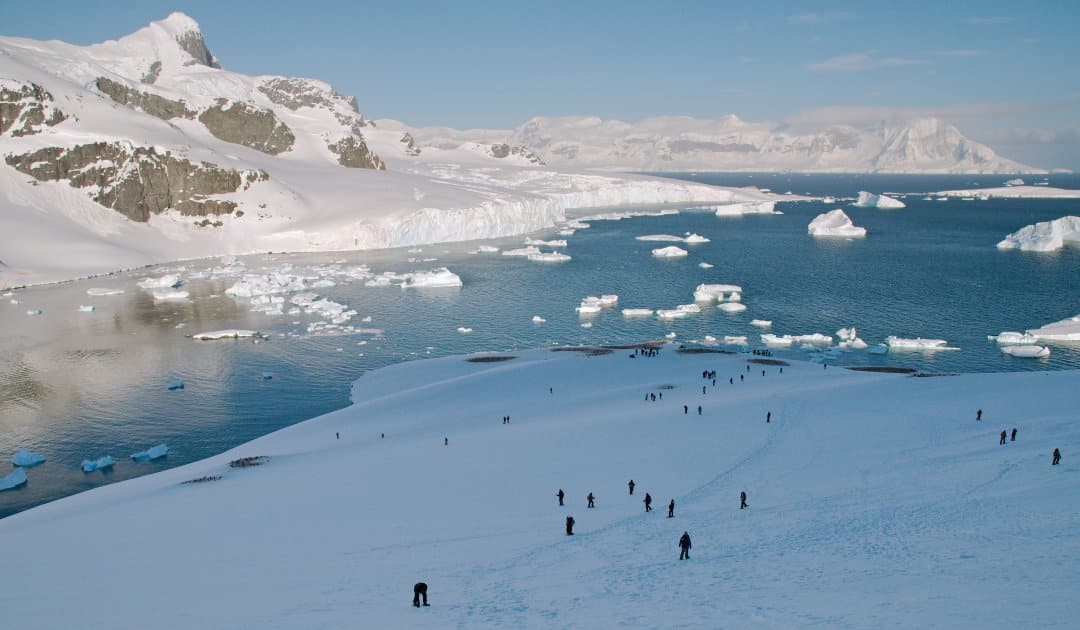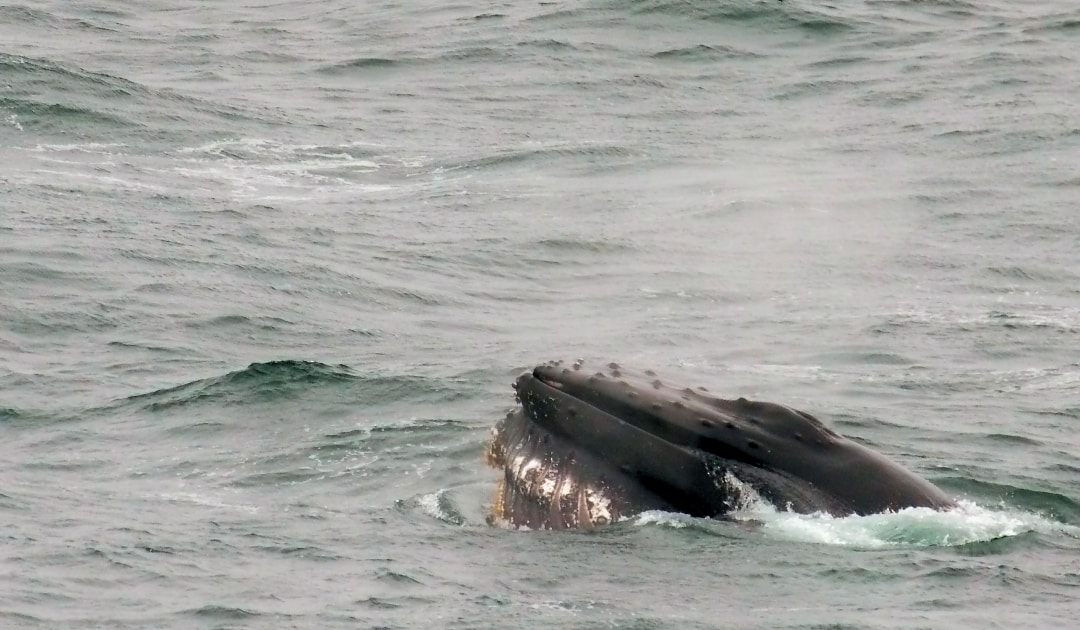
The SARS-CoV-2 virus has been the dominant topic worldwide for more than a year now. The coronavirus has also reached all continents in the meantime, including Antarctica. Since the beginning of the pandemic, scientists have also asked themselves whether the virus can be re-transmitted from humans to animals. An international team of experts has scientifically investigated this question and has identified various transmission routes and the risks involved.
The 15-member research team, with Spanish penguin researcher Andrés Barbosa as lead author of the study, concluded that both tourists and station personnel who come into contact with Antarctic wildlife pose a risk to Antarctic wildlife. At the same time, however, the team explains that the level of risk of retransmission of the SARS-CoV-2 virus has not been adequately clarified. They also published a list of guidelines and measures that can be taken to further reduce the risk of transmission. The research group’s work was published online last November and in writing on February 10 in the journal Science of the Total Environment.

According to the current state of knowledge, the origin of the SARS-CoV-2 virus lies in the animal kingdom and has jumped to humans through close contact, a so-called zoonosis. The research team now investigated the possibility of a re-transmission, a re-zoonosis, to Antarctic animals. To do this, they compared studies on the genetic structure of different groups of animals that might come into contact with humans in Antarctica. They concluded that whales have a higher susceptibility to the virus than penguins or seals due to their genetics and the structure of their receptors in the cells. But they also write that there is not enough data on transmission possibilities at this point. Therefore, they call for the principle of prudence to prevail. Because it cannot be ruled out that researchers in particular, who have close contact with animals due to their work, are a possible transmission route. They also warn that the virus, if introduced by humans, could also be in the waste water of stations or ships.

In their paper, the team lists recommendations on how to further minimize the risk of transmission. In addition to the usual hygiene and spacing measures already established by the Antarctic Treaty and the enhanced measures implemented by the Antarctic programs to protect against the introduction of the virus into the stations, they recommend that additional protective clothing, masks and goggles be worn when working with animals. For tourist visits, they recommend that here too everyone should undergo several tests and quarantines before boarding a vessel, that distances from animals should be maintained in all cases (even if an animal approaches someone) and that all other IAATO rules should be strictly enforced. Particular attention should be paid to monitoring for SARS-CoV-2 viruses in waste water from ships and stations. Because this is also a way to determine whether the virus has not crept into a station or a ship.

Comment of the author
The work of Andrés Barbosa and the 14 other researchers, all experts in their fields and in Antarctica, is certainly an important study. After all, the transmission of pathogens from humans to the unique fauna of the Antarctic has been an important issue not only since COVID. However, the SARS-CoV-2 virus has renewed our attention to this aspect. In any case, the risks of transmission are there and their impact on the different species should not be underestimated. The team also writes this in their paper. But one should put the study into perspective. On the one hand, the current course of the Antarctic season shows that the introduction of the virus can be reduced to an even lower risk if the protection, testing and quarantine measures are consistently applied. Since at the same time there is no tourist season anyway and almost all of the measures proposed by the working group are IAATO standard, this transmission route therefore is de facto closed at the moment. But the virus is still circulating, and a new season of human activity in Antarctica will begin next fall. Until then, it is now much more important to be able to show at home that we take the virus seriously there and can successfully put it in its place. After all, the protection of Antarctica and its wildlife begins on our own doorstep and not just there, where penguins, seals and whales are at home.
Dr Michael Wenger, PolarJournal
Link to the study: Barbosa et al. (2021) Sci Tot Envi 755 (2), Risk assessment of SARS-CoV-2 in Antarctic wildlife; https://doi.org/10.1016/j.scitotenv.2020.143352
More on the subject:





